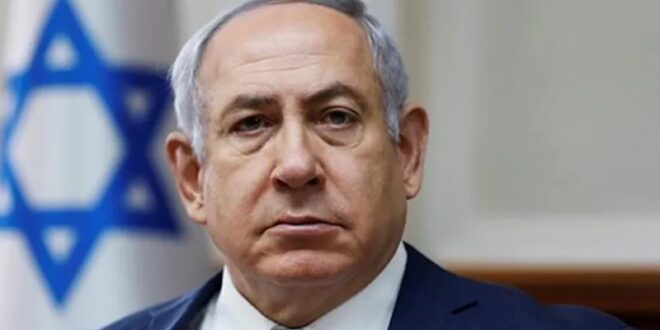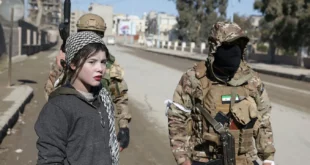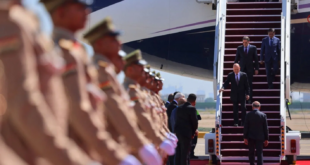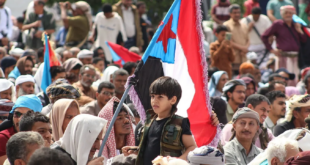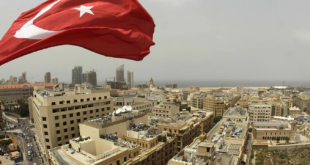Rafael Grossi, head of the International Atomic Energy Agency (IAEA) – known less formally as the UN’s nuclear watchdog – spent March 4 and 5 in Tehran as the guest of the Iranian regime. After discussing nuclear matters with Iranian officials, he met foreign minister Hossein Amirabdollahian, and then Iran’s president, Ebrahim Raisi.
Despite abundant proof over the years of Iran’s duplicity and disregard for any agreement it might sign up to, Grossi, ever optimistic, told journallists he hoped to use his trip to “relaunch the dialogue” on Iran’s atomic work and to “reset the relationship at the highest level.”. He believed he was “paving the way for important agreements”.. He is on the record as calling for the revival of talks focused on limiting Iran’s nuclear program.
“I hope to be able to reset, restore, reinforce that indispensable dialogue,” he has said.
The main purpose of his visit was to publicize Iran’s explanation for a discovery by the IAEA, first reported on February 19. IAEA officials had detected particles of uranium enriched to 84 percent purity at Iran’s Fordow nuclear plant. Uranium enriched to that level is frighteningly close to weapons grade, and international alarm bells had been ringing.
In the 2015 nuclear deal between Iran and major powers, known as the Joint Comprehensive Plan of Action (JCPOA), international sanctions against Iran were cancelled, and in exchange Iran undertook to restrict its nuclear activities. There was always some doubt as to whether Iran ever kept strictly to the terms of the deal, and in May 2018 the US pulled out, and a few months later then-President Donald Trump reimposed sanctions.
Iran’s response was to cast aside any pretense at observing the JCPOA deal, which restricted its uranium enrichment to 4 percent and allowed none at all at the Fordow plant, built deep within a mountain. Ever since April 2021 Iran has been enriching uranium at up to 60 percent purity, and on November 22 Reuters reported that it had started doing so at the Fordow plant.
Now, following months of negotiation, the IAEA chief traveled to Tehran to receive Iran’s explanation of the uranium particles enriched to up to 84 percent purity found at its Fordow plant.
In its response Tehran first repeated its traditional message to the world: it had no desire to acquire nuclear weapons, and no intention of doing so. Accordingly, it denied it had made any attempt to enrich uranium beyond 60 percent purity. It acknowledged, however, that “unintended fluctuations… may have occurred” during the enrichment process. It did not mention that the highly enriched uranium particles had come to light only after Iran, without informing the IAEA., had substantially modified an interconnection between two centrifuge clusters engaged in enriching uranium.
It was at this point in the proceedings that Rafael Grossi turned his attention to the war in Ukraine, and his particular area of interest – Ukraine’s nuclear plant at Zaporizhzhia, the largest in Europe. Russian forces captured it soon after the invasion a year ago, in March 2022, but it has continued to operate with its Ukranian staff. They have said Russian troops are using it as a military base and that workers are in effect held at gunpoint. With Russia receiving increasing military backing from Iran, the plant has repeatedly come under fire, raising fears of a nuclear disaster. Each side blames the other for the shelling. The IAEA has been trying to set up a safe zone around the facility.
The volatile situation at Zaporizhzhia was clearly on Grossi’s mind when he said that any military attack on a nuclear facility was illegal. Expanding on that statement, however, he added that the principle applied to all nuclear facilities around the world.
“I think any attack, any military attack, on a nuclear facility is [outside the law]…This is valid and applicable to every nuclear facility in the world.”
With the JCPOA in abeyance, and no restraints being applied to Iran’s nuclear development program (which Iran’s secret nuclear documents, captured by Israel in July 2018, showed to be active and advanced), Israel has not denied launching attacks on Iranian nuclear and military sites. If Grossi intended his words to be an oblique warning to Israel’s new government, he was very quickly made aware that his meaning was abundantly clear to its prime minister, Benjamin Netanyahu.
At a Cabinet meeting the next day, Netanyahu asked which law forbade a nation attacking the facilities of a declared enemy that was producing nuclear weaponry designed to be used against it. “Is Iran, which openly calls for our destruction, permitted to defend the destructive weapons that would slaughter us? Are we permitted to defend ourselves? It is clear that we are, and it is clear that we will do so.”
With the festival of Purim on the horizon, he drew a parallel between events in the Persia of 2500 years ago and today’s Iran. Enemies intent on destroying Jews arose in both. They did not succeed then, said Netanyahu, and they will not succeed now. Rafael Grossi, he said, was “a worthy gentleman who had said something unworthy.”
Despite the patent failure of international efforts to restrain Iran’s nuclear ambitions, and in the face of abundant evidence that the Iranian regime is prepared to do deals and make agreements that it has no intention of honoring, Grossi remains ever hopeful of curbing its determination to acquire a nuclear arsenal. His dig at Israel may have been intended to smooth the path to discussions with his Iranian hosts about a renewal of the JCPOA deal, but constraining the ayatollahs’ extravagant nuclear ambitions may require considerably more robust action than that – as Netanyahu more or less said, in his first ever address to the Iranian people, on March 9.
 Eurasia Press & News
Eurasia Press & News
